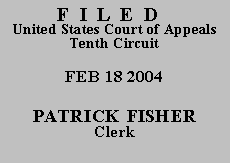

| UNITED STATES OF AMERICA, |
|
Before SEYMOUR, MURPHY, and O'BRIEN,
Circuit Judges.
After examining the briefs and appellate record, this panel has determined
unanimously that oral argument would not materially assist the determination of
this appeal. See Fed. R. App. P. 34(a)(2); 10th Cir. R. 34.1.9(G). The case is
therefore ordered submitted without oral argument.
Helio Espinoza-Madrid pled guilty to the distribution of fifty grams or more of a controlled substance in violation of 21 U.S.C. § 841(a)(1)& (b)(1)(B). He claims the district court erred in failing to apply a downward adjustment to his offense level because he played only a minor role in the illegal transaction. Exercising jurisdiction under 18 U.S.C. § 3742(a) and 28 U.S.C. § 1291, we affirm.
Background
In February 2002, Espinoza-Madrid met with a law enforcement informant and arranged to sell to the informant and an undercover agent one pound of methamphetamine. As arranged, the parties met in the parking lot of the hotel where Espinoza-Madrid was employed in Boulder, Colorado. The undercover officer showed Espinoza-Madrid the cash for payment and, at Espinoza-Madrid's request, counted the money. The officer and Espinoza-Madrid discussed doing additional business in the future, and he gave the officer a telephone number where he could be reached. He then placed a call to another individual who arrived at the scene, delivered the drugs, took the payment and left. In March 2002, Espinoza-Madrid completed another drug deal with a different undercover officer.
Espinoza-Madrid was charged in a two count indictment. He pled guilty to Count I of the indictment relating to the first sale. In exchange, the Government agreed, inter alia, to dismiss identical charges relating to the second sale.
At sentencing, Espinoza-Madrid maintained he was entitled to a two-level reduction in his offense level because he was a minor participant in the offense. USSG § 3B1.2(b). He argued the major role was played by the unidentified individual. The district court disagreed and denied the requested reduction.
Discussion
The first point of contention centers on the applicable standard of review. Espinoza-Madrid maintains a de novo standard of review applies because the district court erroneously interpreted the guidelines to preclude consideration of the unidentified participant's role in relation to his own role. See also United States v. Williamson, 53 F.3d 1500, 1524 (10th Cir.) (interpretation of USSG § 3B1.2 reviewed de novo), cert. denied sub. nom, 516 U.S. 882 (1995). The Government argues the district court's determination was factual and therefore should be reviewed for clear error. United States v. Donaldson, 915 F.2d 612, 615 (10th Cir. 1990). We agree with the Government's position.
Section 3B1.2 provides for a two-level decrease in the defendant's offense level if the defendant was "a minor participant in [the] criminal activity." A participant is "a person who is criminally responsible for the commission of the offense, but need not have been convicted." USSG § 3B1.1, comment.(n.1). Espinoza-Madrid claims the district court committed legal error because of its "apparent belief that an unidentified actor cannot be a 'participant' for purposes of determining a defendant's role in an offense." (Appellant's Br. at 2.) His argument mischaracterizes the court's ruling.
It is true the district court stated, "as indicated by the Government, we don't know how culpable the average participant is because we don't know who the average participant is." (Tr. at 9.) However, this statement was made in recognition that the stipulated facts--that the unidentified participant brought the drugs and took the money--were the only evidence offered by Espinoza-Madrid to sustain his burden of proof that he played a minor role. United States v. Gault, 141 F.3d 1399, 1404-05 (10th Cir.), cert. denied, 525 U.S. 910 (1998). The district court continued by discussing Espinoza-Madrid's role in the offense. Again, based on the stipulated facts, the court noted he had arranged the deal, met with the undercover officer, requested the officer count the money in front of him, and discussed future deals before arranging for the drugs to be brought to the location.
We find no error, let alone clear error, in the district court's conclusion "[Espinoza-Madrid] participated in every phase of the offense," and therefore, was not entitled to a minor role adjustment. (Tr. at 10.)
AFFIRMED.
Entered by the Court:
Terrence L. O'Brien
United States Circuit Judge
*. This order and judgment is not binding precedent except under the doctrines of law of the case, res judicata and collateral estoppel. The court generally disfavors the citation of orders and judgments; nevertheless, an order and judgment may be cited under the terms and conditions of 10th Cir. R. 36.3.